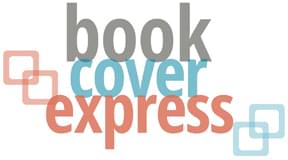“Social media is very important, as is author branding. More and more readers choose based not just on a book, but because they have gotten to know an author “personally”. — Gwen Gades, owner of Dragon Moon Press in Alberta, Canada
Book sales are no easy thing to achieve in today’s market. Even the most riveting stories, polished by the best editors and proofreaders can fade into oblivion soon after they’re released. Reviews help, but it’s difficult to get enough reviews to sway an ambiguous reader into making a purchase, so you might have to promote your book with wit and charm or even controversy. The most efficient way to do this is by connecting directly with your audience online.
For this reason, it’s important to include a professional website or blog in your marketing plan. It can involve a heavy investment in time to create a website, or you can hire someone to do the heavy lifting, but financially, it’s one of the least expensive forms of promotion available.
Blog-style sites are by far the easiest to set up and maintain. Blogs require little or no knowledge of web design and allow the writer to log in and post an article in minutes. Blogs also allow readers to comment on each post, which optimizes the interaction between author and audience. Comments can be turned off or restricted with the click of a button, to avoid any issues with spam. The author is in complete control. Accepting and responding to comments also gives a writer the opportunity to build a customer base and mailing list (as long as he or she asks permission before eMailing anyone) to make announcements.
Fees to have a blog professionally designed start as low as a few hundred dollars. Your dot com (the URL or web address people will use to find your site) will probably cost $15 – $20 per year. While there are plenty of free blog hosting sites available, it’s easier for people to find your site and remember it, if the URL is customized.
You can invite readers to your site via a Facebook page, Twitter, Stumbled Upon and other social networking resources that are fairly easy to set up and maintain—and free.
You, or your graphic designer, can create a customized look across these platforms, so people will immediately be able to recognize it as your brand, which is preferable to having the same header and layout as 100 other authors in your genre—often the case for people using free templates with no customization.
I asked well-known agent Andrea Brown of the Andrea Brown Literary Agency, if she thought it was important for authors to have an online presence and she replied, “short answer is yes—authors must have.”
That opinion is shared by Gwen Gades, owner of Dragon Moon Press in Alberta, Canada. “Social media is very important, as is author branding. More and more readers choose based not just on a book, but because they have gotten to know an author “personally”.
Large publishing houses, including Random House have an online biography for each of their authors that includes book cover images, links to purchase their books, links to personal blogs and websites, as well as Facebook pages. Harlequin has a similar setup for its romance authors. The Penguin Group (USA) has also recognized the importance of authors having and online presence and have a PDF called Penguin Authors Guide to Online Marketing, published back in 2008 (Google the title if you want to see it).
If you’re a small press owner or self-publisher, you’ll want to spend your time and money wisely, and in today’s market that should be in online promotions where you’ll be able to reach the highest number of people for the least amount of investment.
